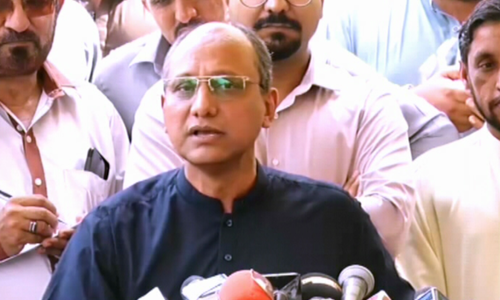Educational institutions across the country will be reopened after a nearly five-month hiatus on September 15 provided that the "health indicators improve", Education Minister Shafqat Mahmood announced on Thursday.
In a press conference, the minister said further discussions will be held on the matter and authorities will review the decision in August in light of the coronavirus situation in the country. If the crisis is not curbed, schools and universities will not be opened, he said.
The education minister said schools could not be opened in July as Eidul Azha will be celebrated by the end of the month and in August the country will observe Ashura.
Mahmood further said standard operating procedures (SOPs) will be put in place before the opening of educational institutions and that authorities were mulling over several options. The government is looking at several options including scheduling classes for different standards on alternate days, he said, adding that there were also suggestions of holding classes in open air.
Since the government has decided to allow schools and universities to reopen, educational institutions will be allowed to call in their staff before Sep 15 so that administrative operations can be resumed, he said. Academic institutions will have to clean up premises as well as train staff about the SOPs laid out by authorities, the minister added.
He warned that any school or academic institution that was found guilty of violating SOPs will be shut down by authorities.
The government has also decided to allow educational institutes, organisations and boards etc. to reschedule examinations — that had been delayed in March — in July before Eidul Azha, Mahmood said. SOPs will have to be followed and different proposals were being considered to decide the measures that will be put in place.
Additionally, it has been proposed that, by the end of July or after Eidul Azha, universities allow PhD students to access laboratories in order to continue their research. Universities may decide on the matter in accordance with the SOPs each institution has laid out.
He acknowledged that many students had suffered from a lack of internet access due to which they had missed out on online classes. To make up for the loss, the government will permit universities to let students come to hostels after Eidul Azha, the minister said. Hostel occupancy rate, however, should not exceed 30 per cent, Mahmood said.
The SOPs will be designed by the federal ministry but provincial governments will be allowed to alter them as per the situation in their respective provinces.
The education minister's press conference comes a day after a virtual conference was held between education ministers of all provinces, where it was decided that educational institutions will be opened in across the country in September, provided there is permission from the Ministry of National Health Services and approval from the NCC, which had previously decided to keep schools closed until July 15.
After a detailed discussion, the participants had decided that institutions should stay closed until the first week of September and reopened after the coronavirus situation has been reviewed under SOPs.
Furthermore, while discussing examinations of professional groups, such as medical and engineering entry tests and religious boards’ exams, the participants proposed that they be held with special arrangements such as keeping six feet of distance between all individuals and requiring that people wear masks and gloves.
Both proposals will be placed before the National Command and Operation Centre headed by Planning Minister Asad Umar, and then before the National Coordination Committee.
The government had ordered the closure of schools and other educational institutions in mid-March, after the first cases of the novel coronavirus were detected in the country. All examinations had been suspended as well.
In order to continue academic activities in the country and mitigate the loss of students, the federal ministry had launched a national broadcast education channel in April.
Teleschool — the dedicated TV channel — is aired through a beam provided by Pakistan Television (PTV) across the country from 8am to 6pm for online education from class one to 12.












































